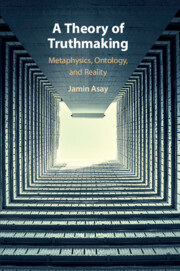Chapter 8 - Realism
from Part II - Applications
Published online by Cambridge University Press: 18 April 2020
Summary
Realism – as its name suggests – ought to be thought of primarily as a metaphysical thesis. Realism is a commitment to reality, and reality is the domain of metaphysical study. Though realism is connected to matters both epistemological and semantic, it is suggested that realism, at its core, be construed as fundamentally a metaphysical view. Hence it is suggested that, when we contemplate the thorny question of what realism is, we employ the notion of truthmaking. Truthmaker theory, which falls squarely within the domain of metaphysics, is perfectly suited to articulate what realism is all about. It therefore enjoys an advantage over attempts to define realism in terms of truth, reference, or any semantic notion. This chapter presents a truthmaker-based conception of the debate between realism and antirealism, and showcase its virtues in helping us to understand a perennial metaphysical topic. It first shows how truthmaking is a more useful tool than truth in defining realism. Then the book’s account of realism, which is applied to the realism debates in metaethics and the philosophy of science, is defended. Along the way, a projectivist attitude toward truthmaking for quasirealists is motivated.
Keywords
- Type
- Chapter
- Information
- A Theory of TruthmakingMetaphysics, Ontology, and Reality, pp. 150 - 172Publisher: Cambridge University PressPrint publication year: 2020

